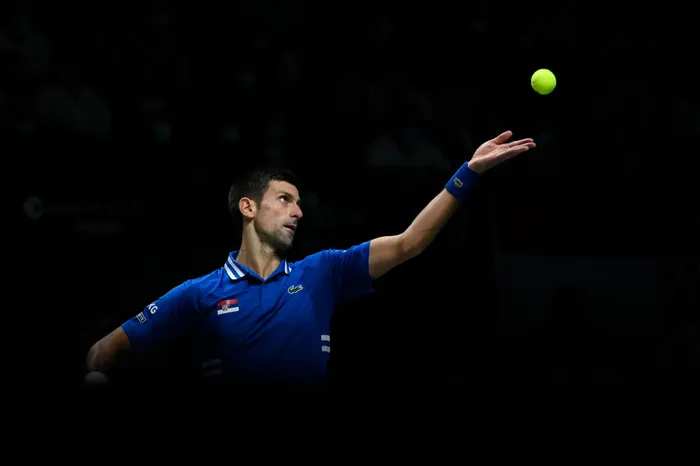So how did Djokovic get a medical exemption?

FILE - Novak Djokovic will be at the Australian Open. Photo: Oscar del Pozo/AFP
Melbourne – Novak Djokovic sparked anger after getting a medical exemption that will allow him to defend his Australian Open title without being vaccinated against Covid-19.
So how did the world number one do it?
AFP Sport looks at the rules:
Who got an exemption?
The Serb is among a "handful" of players and support staff who gained a vaccine exemption allowing them to enter the country, according to Australian Open boss Craig Tiley.
But the medical reason for the vaccine-sceptic player obtaining the exemption has not been revealed.
BREAKING: Anti-vax world No 1 Novak Djokovic WILL play at the Australian Open, despite Covid rules barring unvaccinated players, as he admits he is using a medical exemption loophole https://t.co/hdJX2lp47W pic.twitter.com/jfQLDJU8C6
— MailOnline Sport (@MailSport) January 4, 2022
"In this case an exemption was granted on grounds which are personal medical information, which we do not receive," Tiley told Australia's Channel Nine television on Wednesday.
"It is up to that applicant to disclose what those grounds were."
ALSO READ: ‘No special’ favours for Djokovic according to Aussie open chief
How does it work?
A total 26 tennis players and support staff applied for exemptions, Tiley said.
These were examined by two panels in a system set up in agreement with the Victorian state government, according to the Australian Open, with players' identities hidden from the medical panels.
A first panel of doctors decided whether applications abided by the exemption guidance of the government's Australian Technical Advisory Group on Immunisation (ATAGI).
If they qualified, they were then examined by a second government-appointed panel of medical experts.
What illnesses are included?
These are the key reasons ATAGI sets out for allowing a temporary exemption from Australia's Covid-19 vaccine requirements:
• Proof by PCR test that you have already had a Covid-19 infection. This allows you to defer vaccination for six months after the infection.
• A "major medical condition" such as major surgery or hospitalisation for a serious illness.
• A "serious adverse event" to a previous Covid-19 vaccination, for example a reaction that is life-threatening or requires hospitalisation – if there is no acceptable alternative vaccine available.
• People who are a risk to themselves or others during the vaccination process, for example because of a mental health disorder.
• For vaccines such as Pfizer or Moderna, proof of an inflammatory cardiac illness within the past three months.
Australian officials have been flamboyantly insisting they will bar tennis players from their country unless they are vaccinated or have a medical excuse.
— Glenn Greenwald (@ggreenwald) January 4, 2022
Magically, the steadfastly unvaccinated Novak Djokovic - one of the planet's fittest athletes - qualifies for an exemption! https://t.co/k9w7ZJj5zY
What is the reaction?
Tiley said he could understand people being "completely upset" at the news of Djokovic's exemption but insisted he had not been given special treatment.
Whoever knocks Djokovic out of the #AusOpen may never need to buy a beer In Australia ever again.
— Matt Walsh (@MattWalshMedia) January 4, 2022
Anyone meeting the guidelines, including through proof of a recent Covid infection, was allowed to enter Australia, Tiley said.
"So there has been no special favour, there has been no special opportunity granted to Novak," he added.
Tiley argued that the rules were in fact stricter for tennis players than other people.
Australia is waking up angry about the Djokovic exemption news. pic.twitter.com/ArhBmXM9VS
— Ben Rothenberg (@BenRothenberg) January 4, 2022
"For tennis players, it was a process that goes above and beyond what anyone coming into Australia would have experienced," he said.
"We had an extra panel, panel of experts, which through a blind review assessed any application and then granted exemptions if it was appropriate."
AFP
Related Topics: